In today's digital landscape, ensuring personal data protection is more crucial than ever. With increasing concerns about privacy breaches and data misuse, organizations must adopt robust compliance measures to safeguard sensitive information. This article will explore essential practices and guidelines that can help you navigate the complex world of data protection with confidence. So, let's dive in and discover how you can keep your data safe and secure!
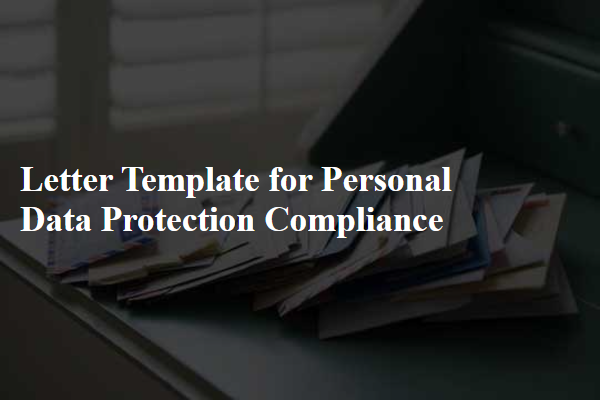
Legal basis for data processing
Personal data protection compliance is essential for organizations handling sensitive information, especially under regulations like the General Data Protection Regulation (GDPR) established in the European Union in 2018. The legal basis for data processing can include consent from individuals, performance of a contract, compliance with a legal obligation, protection of vital interests, public task performance, or legitimate interests pursued by the organization. Each basis has specific criteria and requirements, such as obtaining clear, informed consent, ensuring the data processing is necessary for contract fulfillment, or demonstrating a compelling legitimate interest that does not override privacy rights. Organizations must maintain records of processing activities, demonstrating adherence to these legal bases to ensure transparency and accountability in the management of personal data.
Individual rights and controls
Individuals possess fundamental rights regarding their personal data, especially under regulations such as the General Data Protection Regulation (GDPR) enacted in the European Union in May 2018. These rights include the right to access, allowing individuals to request copies of their personal information held by organizations. The right to rectification enables corrections of inaccurate data. Individuals also maintain the right to erasure, commonly referred to as the 'right to be forgotten,' allowing them to request deletion of their data under specific circumstances. Moreover, the right to data portability permits individuals to transfer personal information between services seamlessly. Lastly, individuals have the right to object to data processing that impacts their interests, particularly in direct marketing scenarios. Organizations must implement robust processes to uphold these rights, ensuring compliance and fostering trust with customers in a data-driven landscape.
Data retention and deletion policies
In today's digital landscape, data retention and deletion policies are crucial for ensuring personal data protection compliance, especially in jurisdictions like the European Union with the General Data Protection Regulation (GDPR). Organizations must establish clear guidelines, underscoring the duration for which personal data, such as customer information and transaction records, can be retained, typically ranging from 6 months to 7 years depending on legal obligations. Regular audits, carried out bi-annually or annually, can assess compliance effectiveness by evaluating internal data access logs and storage practices. Additionally, proper data deletion methods, including secure overwriting and physical destruction for non-digital records, are essential to minimize risks associated with data breaches. Training programs for employees can enhance awareness about data handling best practices, ensuring a culture of compliance and responsibility regarding personal information management.
Security measures and protocols
Implementing robust security measures and protocols is essential for ensuring personal data protection in organizations, particularly those handling sensitive information like Social Security Numbers or financial records. Encryption protocols such as Advanced Encryption Standard (AES) with 256-bit keys are vital for safeguarding data in transit and at rest, as seen in major compliance frameworks like GDPR and HIPAA. Access control measures must limit data access to authorized personnel only, employing multifactor authentication methods to verify user identities. Regular security audits, ideally quarterly, can help identify vulnerabilities, while employee training sessions every six months can elevate awareness regarding phishing attacks and data handling best practices. Additionally, developing an incident response plan that outlines steps to take in case of a data breach can significantly mitigate potential damages, ensuring organizations remain compliant with regulations and protect sensitive personal information effectively.
Third-party data sharing and agreements
In today's digital landscape, third-party data sharing poses significant risks and compliance obligations, particularly concerning personal data protection regulations such as the General Data Protection Regulation (GDPR) in the European Union and the California Consumer Privacy Act (CCPA) in the United States. Businesses and organizations that process personal information must establish clear agreements with third-party vendors, ensuring they adhere to stringent privacy standards. These agreements should encompass specific clauses detailing data usage limitations, security measures, breach notification procedures, and audit rights. Regular assessments of third-party compliance practices are essential to maintain alignment with the evolving legal landscape around data protection, safeguarding individuals' sensitive information from potential misuse or unauthorized access in accordance with applicable laws and industry standards.

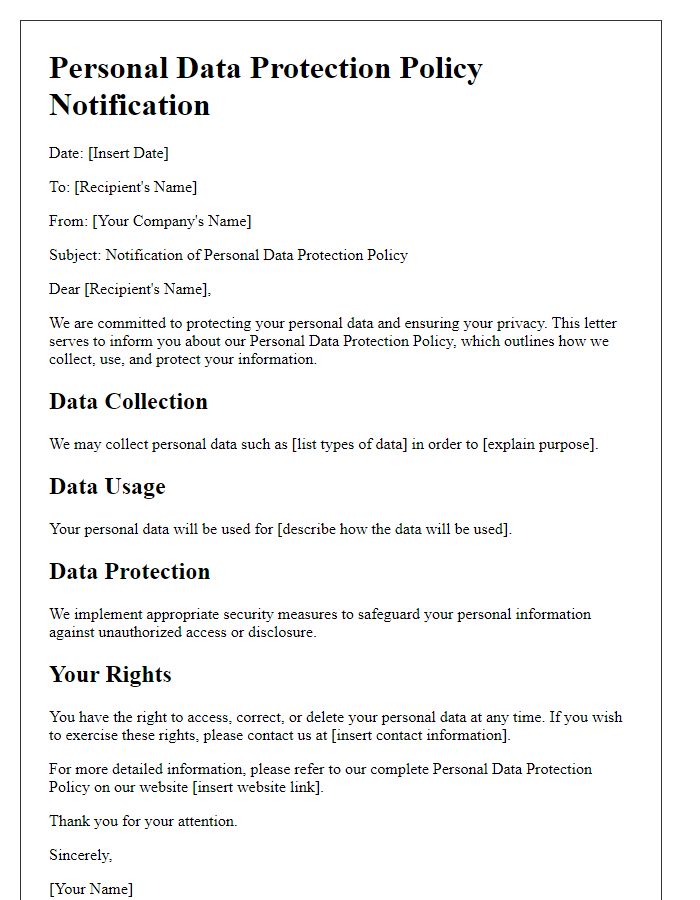
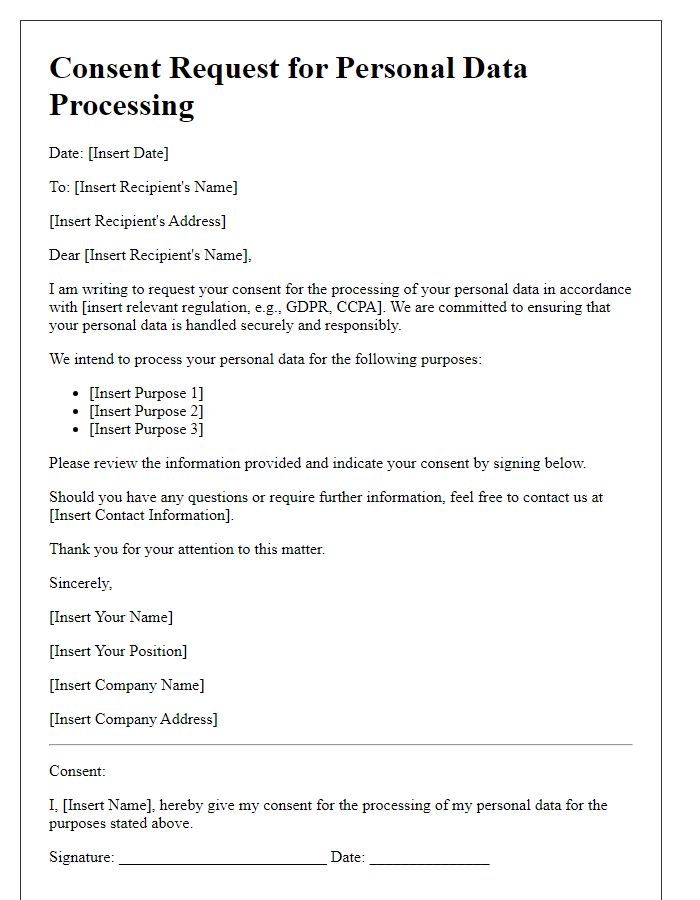
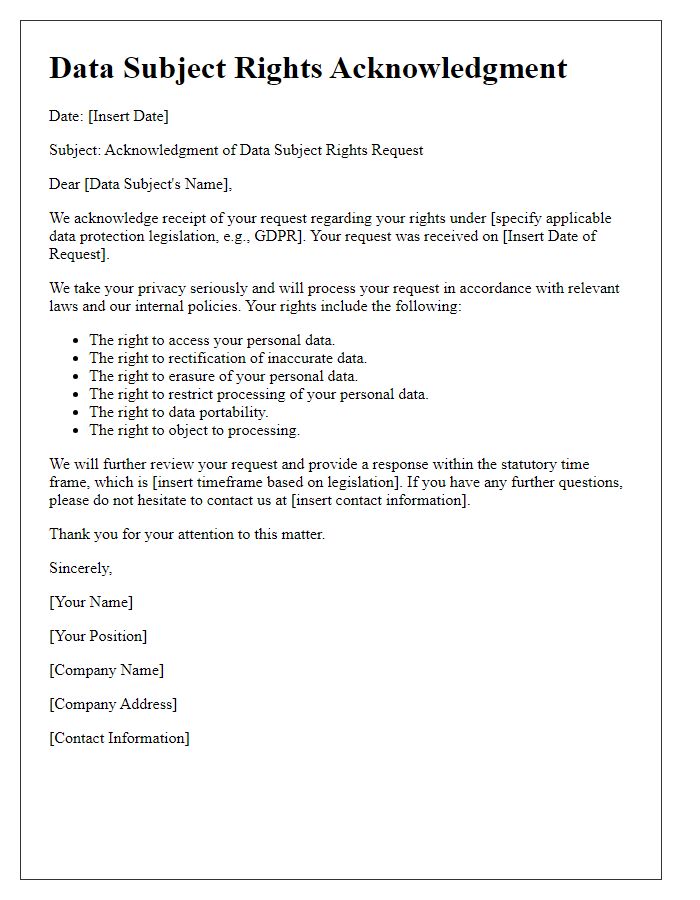
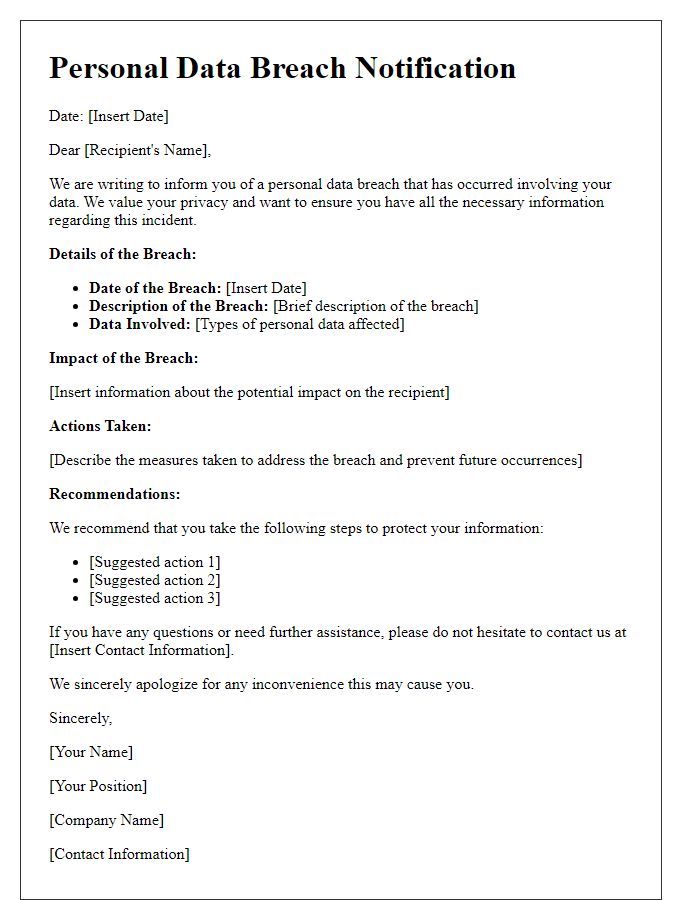
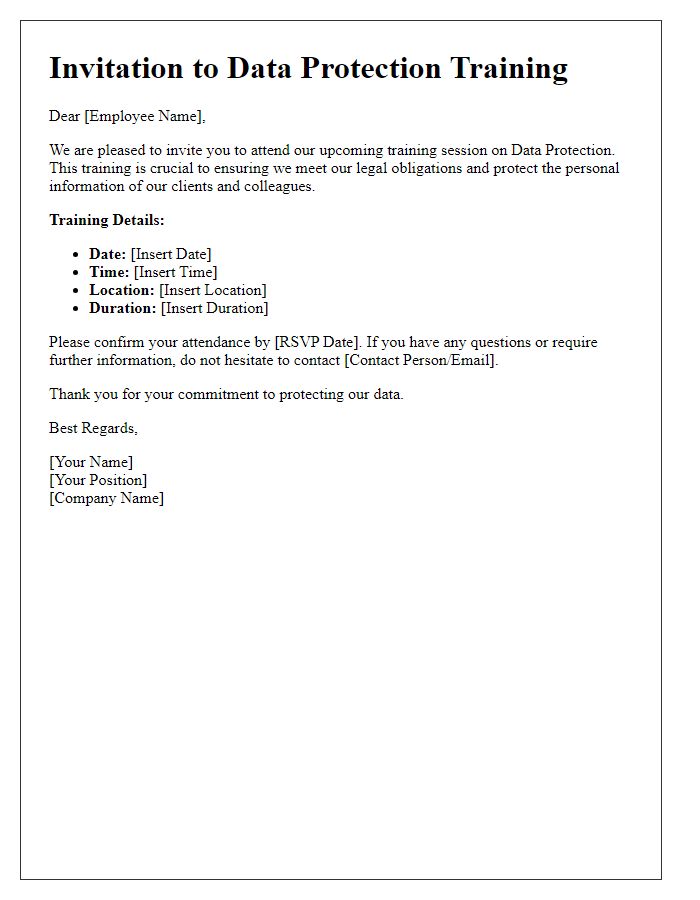
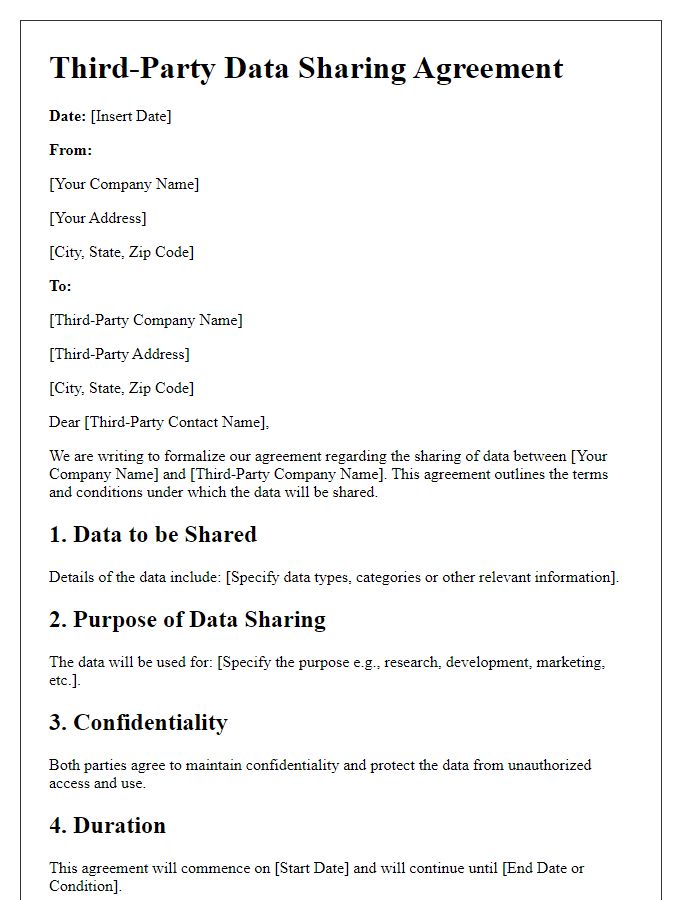
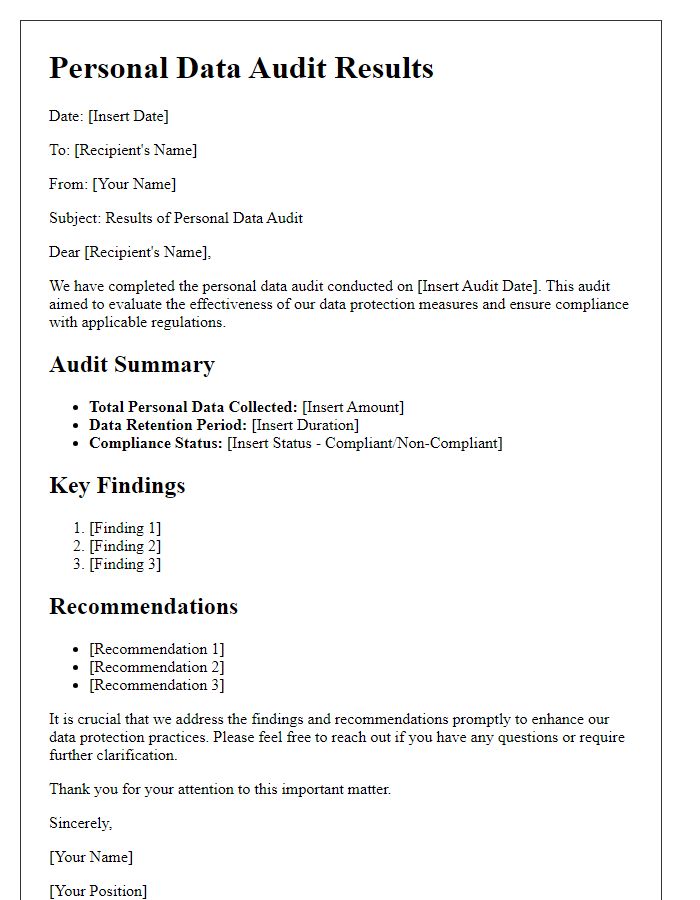
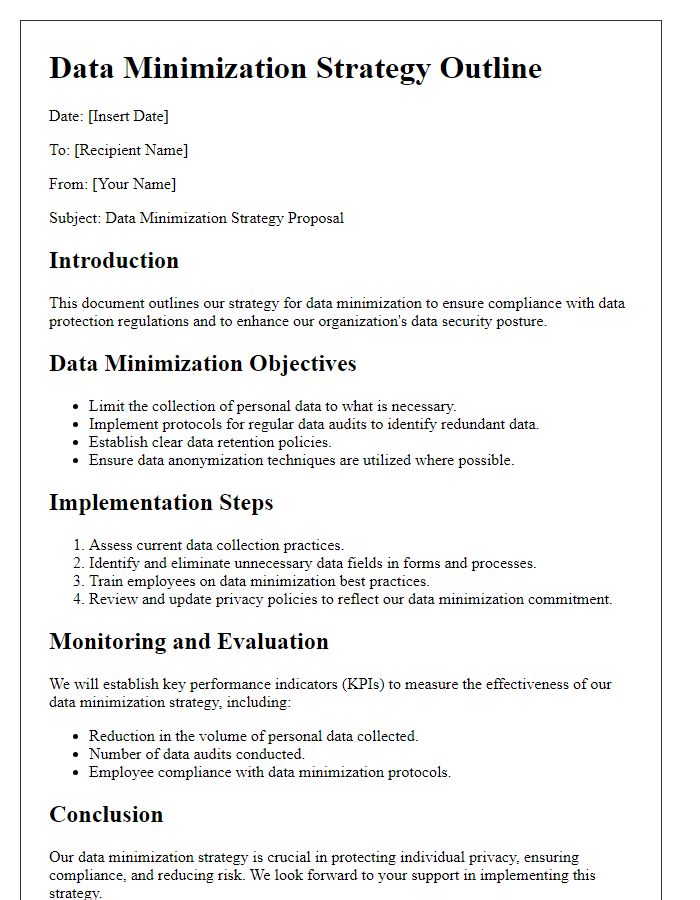
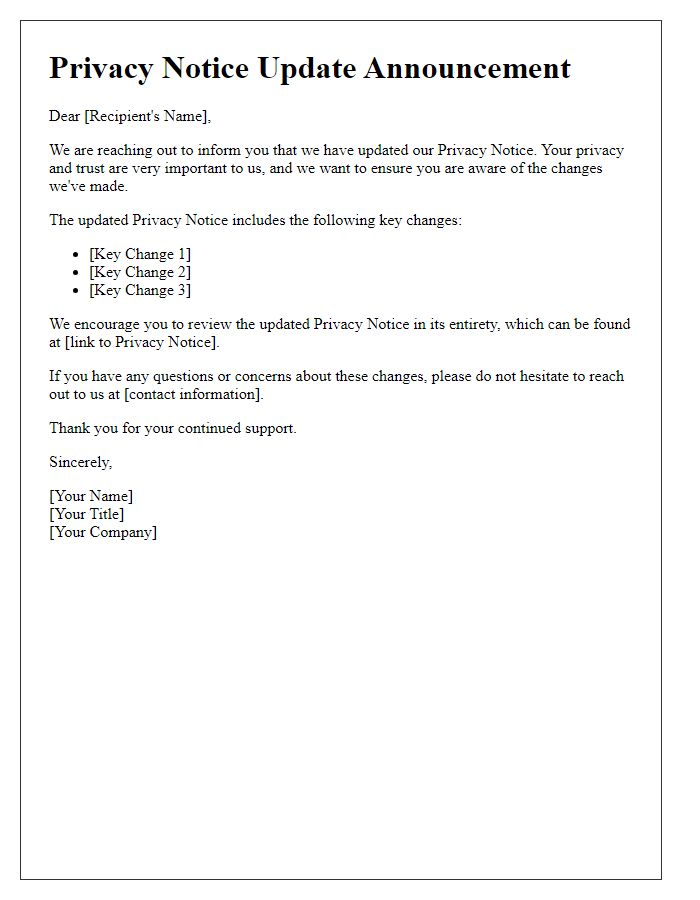
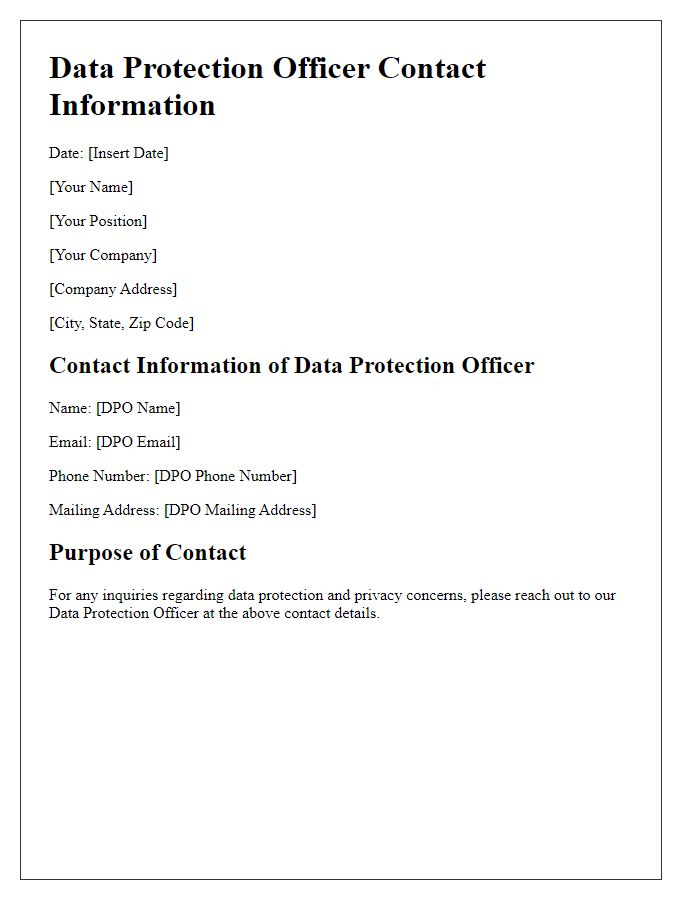


Comments